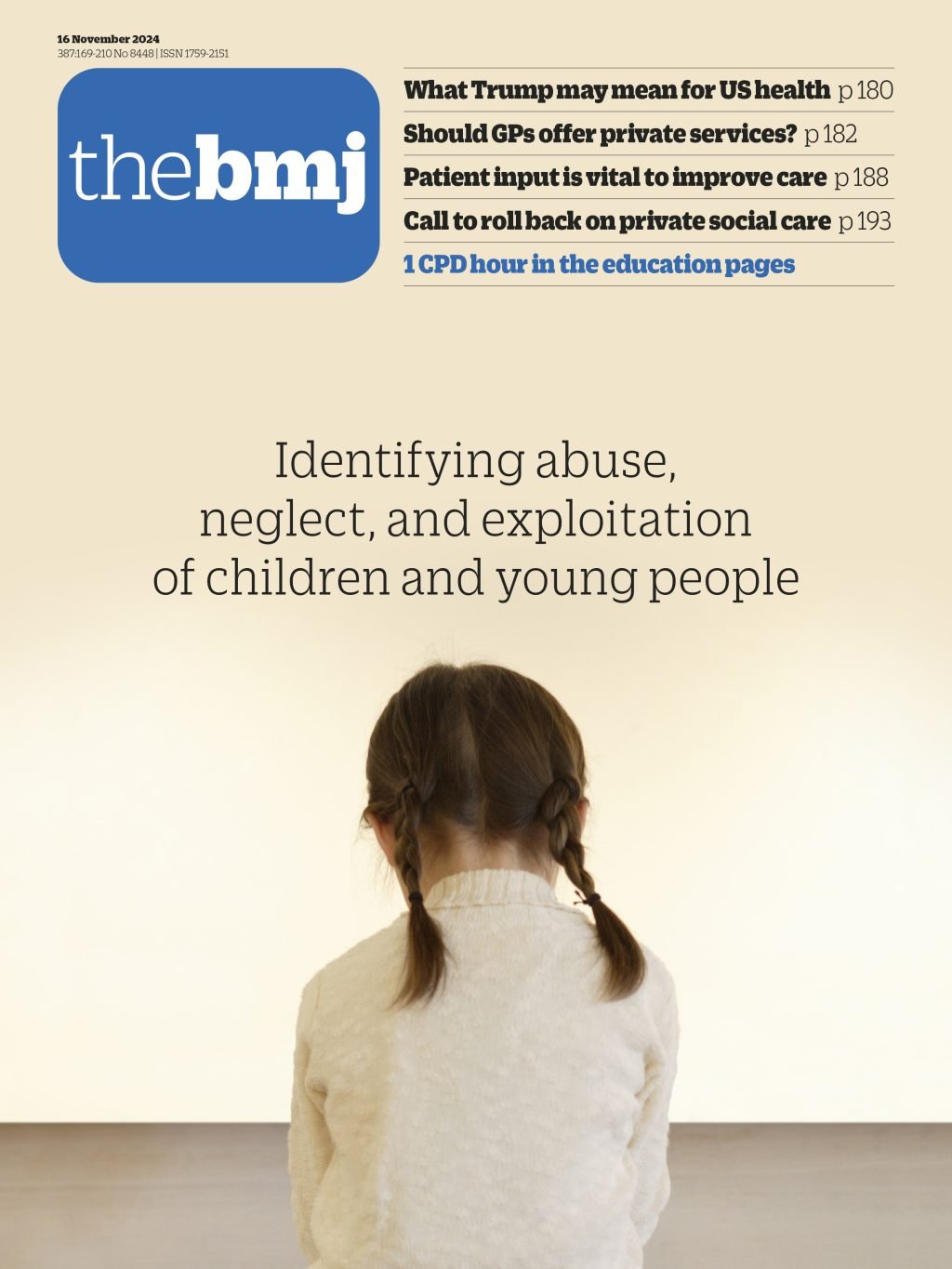
- Kirsty Kitchen, head of policy, birth companions
This year’s annual confidential inquiry on maternal deaths–MBRRACE saving lives, improving mothers’ care 2024–finds evidence of high levels of inequality and little progress.1 Many trajectories have worsened. The maternal death rate is at its highest level for almost 20 years and inequities for race and deprivation are enduring or widening. We cannot reverse these trends without tackling the structural issues and social determinants at play.
For the fifth year running, the number of women who died while known to social services has risen, now standing at 22% of the deaths reported. Maternal suicide remains the leading direct cause of death between six weeks and a year after giving birth. Past MBRRACE reports have highlighted that a large proportion of the women who died by suicide or because of substance use were at risk of having their baby removed from their care.
Birth Companions has been campaigning for improvements in the care of women who are at risk of separation or have had separation from their baby for many years. Yet their needs remain largely absent from health and social care policy and they still struggle to access mental health support. Women are often navigating this traumatic experience alone.
The report also shows the poor experiences of women in maternity care who recently migrated to the UK, finding huge gaps in the provision of safe and appropriate interpretation services. Evidence suggests that bias and racism in care are linked to women’s migrant status, ethnic group, and language. Many women who come to the UK seeking safety, fleeing violence, abuse, and persecution encounter poor and unsafe care. In 61% of cases examined, women who required interpretation had to rely on family members because alternatives were unavailable or not used. This is highly inappropriate and unsafe, especially for women experiencing domestic abuse and because vital health information needs to be shared accurately.
Reviewers in the study found improvements in care could have made a difference to the outcome in 45% of women’s cases. Opportunities to improve the care and experiences of migrant women were even higher, at 66% of cases.
Inequities are difficult to tackle, but not impossible. The challenge is that the roots of these issues are intersectional and stretch beyond the health system. Issues reach across social care, housing, income, criminal justice, immigration, and more. They are entwined with women’s experiences of racism, poverty, trauma, and abuse; and in their struggles to access support from mental health, domestic abuse, drug and alcohol, and family services. Yet too often, efforts to respond to the figures from MBRRACE are focused on one part of one system. We need more ambitious, structural responses.
The fundamental needs of pregnant women and mothers of infants must be considered in all relevant policies and initiatives, including the work of the child poverty taskforce, the Women’s Justice Board, and children’s social care reform. But the government and the NHS should also prioritise work in three key areas to prevent maternal deaths and reduce inequities.
Firstly, they must invest in safe, trauma informed, and equitable maternity care. Only when maternity teams have the time, training, and support to provide appropriate care based on each woman’s needs can we hope to reverse these trends.
Secondly, they should undertake an urgent national review of interpretation provision in healthcare. I will never forget hearing one woman’s experience of having her young son interpret for her during a caesarean section. For far too long maternity teams have managed around inadequate reliable interpretation services, which has concerning implications for women and families. This issue needs to be led from the top. Government and the NHS need to look at what is provided, the way these services are used and experienced by women, families, and staff, and establish a more consistent, reliable, and appropriate level of provision.
Finally, the government and health service must get to grips with the deeply troubling rates of maternal death among women who are involved from children’s social care during pregnancy and early motherhood. Systems and services are failing these women and their families and perpetuating intergenerational cycles of harm. Our Birth Charter, published in 2023, calls for the creation of a joint national health and social care pathway for women at risk of or experiencing separation from their baby.2 We have a National Bereavement Care Pathway for women who experience loss through miscarriage, stillbirth, and neonatal death. Women who experience loss through separation deserve something akin to this, embedded across health, social care, and justice systems.
Birth Companions are involved in driving forward improvements in care. We are also working with partners to grow the evidence base around the needs of migrant women and women with involvement from children’s social care to change policy and guidance based on that evidence. But the government and the NHS must play their part too. Urgent and coordinated action is needed to reduce inequities. Resources must be available to deliver safe, trauma informed care, ensure language needs are met, and improve care for women. This need is especially critical for women in the most complex circumstances, including those with social care involvement. Without this action, women will continue to die avoidable deaths.
Footnotes
-
Competing interests: I have read and understood The BMJ’s policy on declaration of interests and declare that I have no competing interests.
-
Provenance and peer review: not commissioned, not externally peer reviewed.







